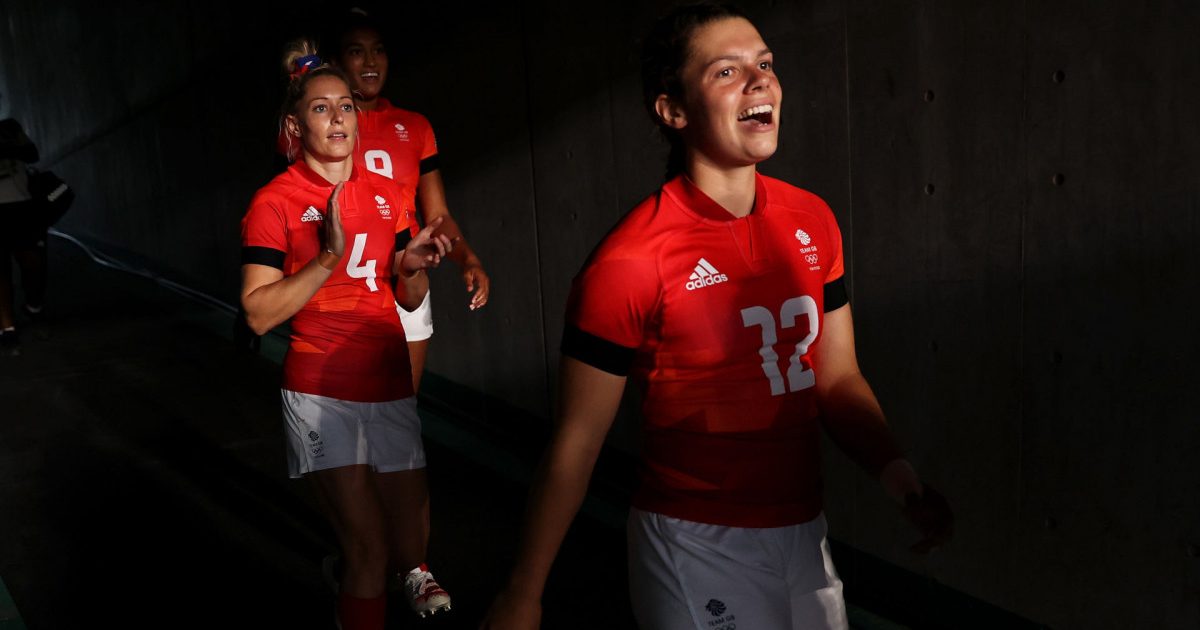'I don't think from the outside you would be able to tell we are from 3 different nations'

Rugby Sevens has everything a sporting fan could ever need. The pace is so fast that if you blink, you stand to miss out on all the action.
Although the competition was thrown into potential disarray when fans found out they would have to pay for a subscription service to watch all matches, the tournament has since stepped up to deliver some edge-of-your-seat-style rugby in the men’s competition.
Ahead of Team GB’s women’s matches, I caught up with England Rugby’s Helena Rowland in Tokyo. This year’s format sees twelve teams involved in the competition. These teams are split into three pools, which each include four teams. Team GB have been placed in Pool A alongside New Zealand, Russia and Kenya.
View this post on Instagram
Speaking on the teams’ preparations, Helena said: “We know what they are going to bring so all of our prep has been going towards how we play against them, and how we can be most effective.”
The Team GB squad spans a vast array of experienced players, including a few more experienced hands who have competed at the last Olympic games. This year’s team will be co-captained by Meg Jones and Abbie Brown, both of whom have strong leadership qualities.
Anyone who plays rugby will know the bonds with your teammates extend far beyond your time together on the pitch. In fact, the game is known for its ability to bring diverse groups of people together, providing players with friendships they will often carry for life.
“We are trying to be a squad as much as we can in our down time, as well as being on the pitch, because it’s only going to help us when we play. If you get on well as a team off the pitch you know that you will have true friends who will have your back on the pitch.”
The squad have been taking this seriously, passing time in the Olympic Village by creating TikTok’s together, and playing ‘Tuk Tuk’ a board game which one of the Scottish players introduced to the set up. Helena smirked: ‘We play that game at least once a day, we are all addicted!’
View this post on Instagram
Due to the pandemic, most premier 15s matches were played with little to no crowds, which Helena argues has prepared them for the Olympic environment. “It is going to be different with no crowd, but it’s been like that for the past year anyway – we are used to playing in empty stadiums, it’s not necessarily going to make much of a difference to our performance.”
Despite their Olympic journey being thrown into question after funding cuts earlier this year, both the men’s and women’s teams managed to secure funding from the National Lottery. This money was considered a lifeline to most, after they were told to find new jobs.
From an outsider’s perspective, I admire how the ‘one team’ mantra has really shone through this year. After a nail-biting men’s match against Team USA, you can tell from the video below that the win meant just as much to the women’s team. I expect the men’s team will be just as supportive when the women take centre stage on Thursday.
One Team ??#Tokyo2020 ? credit: @AbiLucyBurton pic.twitter.com/2o7dXtzNfG
— GB Rugby Sevens (@GBRugbySevens) July 27, 2021
This competition is poised to be an interesting one. Back in 2016 the women’s team just missed out on a medal, placing fourth overall. This time around however, it looks as if the squads are in great shape heading into the games.
View this post on Instagram
As the team brings together players from three different nations, you would think it would take some time for them to gel together. Apparently not.
“I don’t think from the outside you would be able to tell we are from three different nations. You can’t see any of the separation that you would expect from us all playing for different teams in the prem 15s. We genuinely get on really well, it feels like we have been a squad for ages.”
It’s worth remembering that rugby sevens was only added to the Olympic agenda for the first time at Rio in 2016, in the eyes of the general public, this sport is still relatively new. I would argue the fast-paced nature of the game makes it a great addition, when compared to the standard 15s game, 7s ensures to capture the attention of fans who before watching it, might not have considered themselves to be fans of the sport.
At the time of writing, it remains unclear if the matches will be broadcast on the BBC. Due to broadcasting rights the channel is only allowed to broadcast two live events at any one time, meaning it really depends on how the day shakes down with different events. Should the matches not be broadcast on BBC, fans should be able to access them via Eurosport – but this does mean signing up for an account with either Discovery+ or Eurosport.

















































